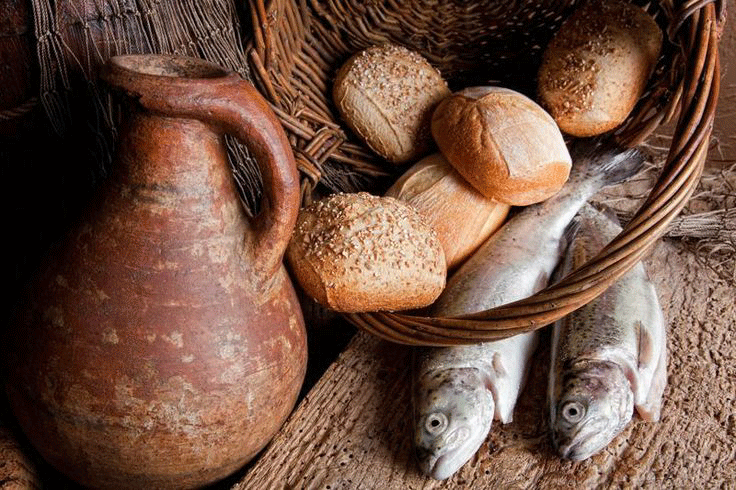Food and Religion
- Jul 29, 2016
- 4 min read

TABOOS, TRADITIONS AND ME
“Food selection is due to different reasons, with religion being one of the strongest principles on which diets are based. Sacred space and time (altars, shrines, feast and fasting days), as well as symbolism and myth (what foods represent or the stories they recall) are all part of religious rituals linked to food.” University of Leeds
Don’t think I shall have that much to say here. Today’s discourse is based on last night’s history of Italian food program which was about how Catholicism has influenced Italian food. Even more than the program on Rome it was frustratingly unsatisfying really. I’m not really sure what I gleaned from it - other than how they came to decree that the cardinals be locked up when they voted for the pope and were apparently only given bread and water if they were taking too long. I bet they don’t do that nowadays. Still there is food (ha, ha!) for thought in the whole notion of religion and food.
To begin with taboos. Just about every population group in the world, whether it be based on religion or ethnicity has some kind of food taboo. And I’m really not sure where they all came from. People often say that taboos on pork are based on the fact that it was unhealthy to eat pork which was a carrier of tapeworm, and no doubt other things as well. And there is possibly a degree of truth in there somewhere, but I reckon that mostly taboos are a power thing - the religion making sure that its followers obey its instructions.
The major taboos are various kinds of meat - pork for the Jews and Muslims, beef for the Hindus - and for some Hindus and Buddhists no meat at all. This general taboo is then further refined down to particular days or parts of the year when you have to fast in some way - either no eating at all - as during Ramadan between sunrise and sunset - or eating only limited amounts - as in Lent. If you want to know more about all these taboos just Google food and religion and you will find what you are looking for.
Then there’s the traditions that come out of the taboos and the celebrations - like at the end of ramadan, harvest festivals, easter ...
Jesus, of course has quite a few stories associated with food - turning water into wine at a wedding, the feeding of the five thousand with just a few fish and loaves of bread, the last supper and the eucharist - bread and wine which is offered at communion. I actually find this one a bit vampirish - I mean - eating his body and blood - something deeply unsettling about that. It’s a cornerstone of the religion though even if it is interpreted in different ways by the different branches of Christianity.
The traditions are the things that have affected me in my life. We always had fish on Fridays - I’m sure there was no religion involved in this but it was such a tradition that we always followed it. Every year at the church there was a harvest festival and we all took a little basket of goodies to give to the poor. And Easter meant pancakes on Shrove Tuesday, hot cross buns on Good Friday and easter eggs. Christmas was a cause of celebration though the traditional turkey is a Victorian invention I think. The yuletide log is much more ancient and goes back to pagan rituals to do with fires and chasing away the dark - well I think that’s it. Lent we didn’t do though and I believe that one of the recent popes reduced it from forty days to just Fridays. So, in the western world at least religious tradition is wavering a bit. Nevertheless there are heaps of saints days and festivals in the Christian calendar, not to mention all the other religions, and I’m willing to bet that food is involved in some way or another in all of them - either in the form of an offering, some kind of deprivation or some sort of festive meal.
And I forgot to mention sacrifice. Early man, who invented gods out of the natural world, saw them as mostly needing to be appeased. Well it was a harsh life and if someone was running it all you needed them to be kind - so you gave them stuff - what you could spare - sometimes what you couldn’t spare (even your children) - after all that is the nature of sacrifice. People still give their children to the monks in some Buddhist communities, though it could be argued that this is giving them the chance at a good life. And I’ve just though of the tithe system that existed for hundreds of years, whereby the Church took a tenth of your output. At least the Romans, practical as ever, seem to have eaten the animals they sacrificed - well probably all those other religions that did (and maybe still do) sacrifice to their gods ate them as well.
So not a cheerful subject really considering the evil that can come out of it all - but much more pervasive than you might have thought - religion and food that is.



























Comments